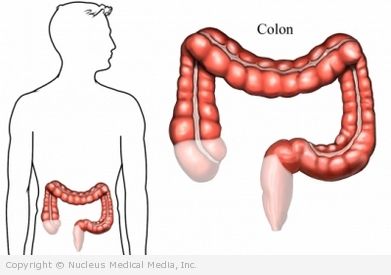Lactose intolerance – Definition
Lactose intolerance is the inability to digest significant quantities of lactose. Lactose is a sugar found in milk and other dairy products.
Lactose intolerance – Causes
Lactose intolerance is caused by an inadequate amount of the digestive enzyme lactase. Lactase breaks down the sugar lactose into sugars the bloodstream can more easily absorb. When not fully broken down, lactose ferments in the colon (large intestine) and causes symptoms.
Some people are born with the inability to make the enzyme lactase. Others develop the intolerance over time.
Causes of lactose intolerance include:
- Aging (lactase decreases as people age)
- Gastroenteritis (or infection in the intestinal tract)
- Nontropical and tropical sprue
- Cystic fibrosis
- Immunoglobulin deficiencies
- Ulcerative colitis
Lactose intolerance – Risk Factors
A risk factor is something that increases your chance of getting a disease or condition.
Risk factors include:
- Race: Black, Asian, or Native American
- Ethnicity: Mediterranean or Jewish
Lactose intolerance – Symptoms
Symptoms of lactose intolerance generally begin within two hours of consuming milk or other dairy products. The severity of symptoms depends on how much lactase your body produces and how much lactose you eat.
Symptoms include:
- Nausea
- Cramping
- Bloating
- Abdominal rumbling sounds
- Gas
- Diarrhea
- Loose stools
Lactose intolerance – Diagnosis
The doctor will ask about your symptoms and medical history and perform a physical exam. Often she will recommend a two-week trial period of eating no milk or milk products. If symptoms subside, you will be asked to consume milk products again. If milk causes symptoms to recur, you will be diagnosed with lactose intolerance.
Your doctor may also order some tests, including:
- Hydrogen breath test — measures how much hydrogen is exhaled after drinking a high-lactose liquid
- Stool acidity test — measures lactic acid in the stool for infants and small children
- Lactose tolerance test — measures the amount of glucose (simple sugar that is created from lactose) absorbed two hours after drinking a high-lactose liquid, indicating how well the body is digesting lactose
- Biopsy of the small intestine — involves removing and testing a sample of tissue to confirm lactase deficiency
Lactose intolerance – Treatment
Though gene therapy has been suggested as a future treatment, there is currently no way to increase the body’s production of lactase. Treatment today focuses on managing symptoms. Experts counsel against complete elimination of dietary lactose, especially in children and adolescents, because milk and milk products provide sources of calcium and other food elements that are otherwise hard to replace. If complete elimination is chosen, then careful replacement of calcium is essential for good health.
Treatments include:
Dietary Changes
Dietary changes include:
- Keep a food diary of what you eat and what the reaction is. Discuss the findings with your doctor or a dietitian.
- Make gradual changes to your diet and record the results.
- Try eating a smaller portion before giving up on a dairy product. Many people can tolerate 4-8 ounces of milk at a time and may have better tolerance for some of the following dairy products made from milk:
- Ice cream
- Sherbet
- Cream
- Butter
- Cheese
- Yogurt
- Aged cheese and yogurt may be easier to tolerate than other dairy products.
- Try milk that is modified so it contains less lactose.
- Ask a dietitian for help choosing substitutes for dairy products or recommending supplements to ensure that you eat enough calcium.
- Nondairy foods rich in calcium include:
- Salmon
- Sardines
- Oysters
- Collard greens
- Broccoli
- Read product labels because other foods containing lactose include:
- Breads
- Baked goods
- Processed cereals
- Instant potatoes and soups
- Margarine
- Nonkosher lunch meat
- Salad dressings
- Candies
- Pancake mixes
- Frozen dinners
- Other words that indicate lactose are:
- Whey
- Curds
- Dry milk solids
- Nonfat dry milk
- Milk by-products
- Be aware that some medicines may contain small amounts of lactose.
Medications
Your doctor may recommend lactase enzymes if you can tolerate only small quantities of lactose. The enzyme supplements come in liquid and chewable form. A few drops of the liquid added to milk, which is allowed to sit overnight, can decrease the amount of lactose in the milk by 70%-90%. Tablets are chewed or swallowed before eating foods that contain lactose.
Lactose intolerance – Prevention
There are no guidelines for preventing lactose intolerance.

